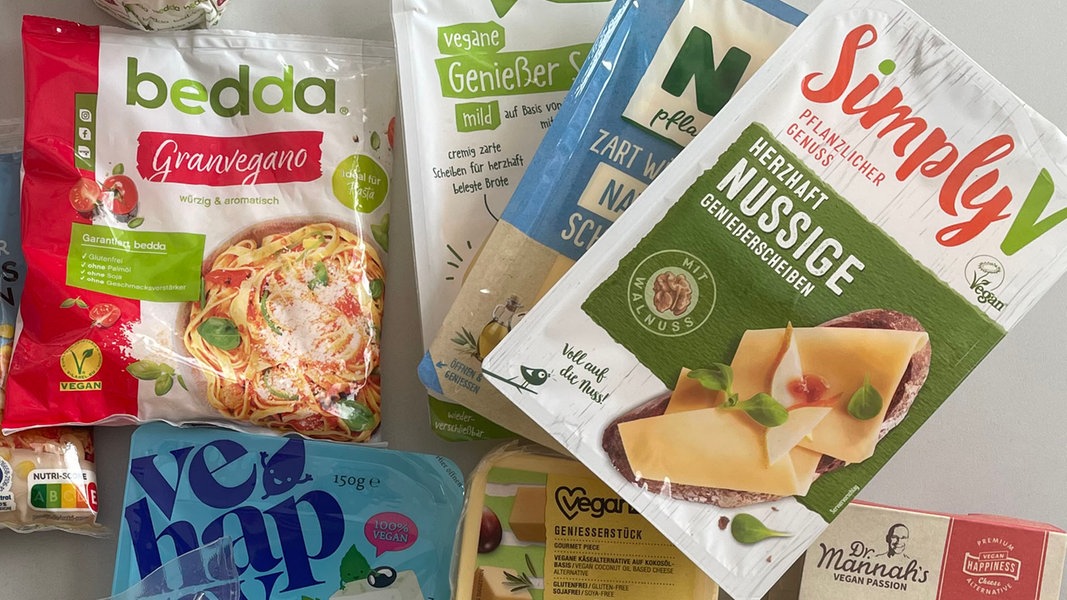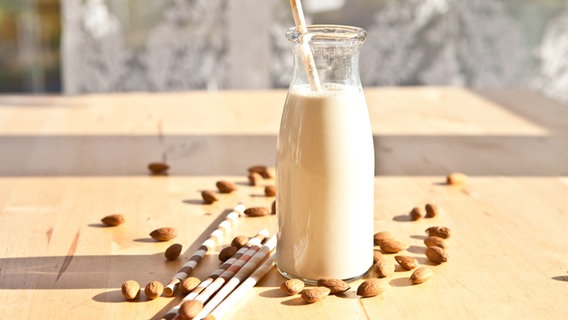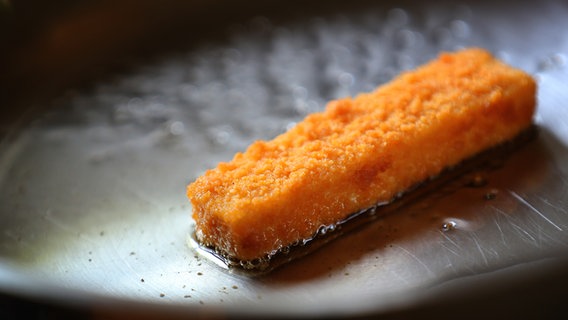Status: 05/03/2023 2:26 p.m
The variety of vegan cheese substitutes on the market is greater than ever. But what’s in it? Is vegan cheese healthier than cheese made from milk? The Hamburg consumer center has tested some products.
Plant-based nutrition is still in trend. Whether it’s feta, cream cheese, mozzarella, semi-hard or soft cheese: vegan cheese substitutes now have a permanent place on supermarket shelves and come in all sorts of variations. The consumer advice center Hamburg has as part of a random sample 17 products scrutinized and compared to cheese products made from milk.
Low proportion of valuable ingredients
Cheese substitute products consist mainly of water, coconut oil or fat and starch. Some also contain nuts, legumes, vegetables or rice. Frederike Rauer from the Hamburg consumer advice center advises to take a close look when shopping. “Some manufacturers juggle the numbers in a particularly clever way in order to conceal the rather small proportion of valuable ingredients.” For example, Simply V’s “Hearty Nutty Gourmet Slices” contain just one gram of walnuts per 100 grams.
Many plant-based alternatives are flavored. But according to the consumer center, the number of additives is surprisingly low at an average of two. Two products even do without any additives: “Italian Herbs” from Dr. Mannah’s and “Vega Delicious Mozzalina” by Rücker.
Low in protein and calcium, but high in salt
Vegan cheese substitute contains hardly any calcium and very little protein. Proteins in the form of potato, sunflower, rice, chickpea or almond protein are added during production. However, plant-based alternatives contain an average of only two percent protein, compared to around 18 percent for regular cheese. The products “Hirtenglück” from Licorne (8.3 grams per 100 grams) and “Italian Herbs” from Dr. Mannah’s (14.1 grams per 100 grams).
Almost all products have a high salt content, in some cases even more than conventional cheese, which in itself is very salty – according to Bedda’s “GranVegano grated”.
Very different in taste
If you compare the vegan cheese substitute products with cheese products made from milk, according to the Hamburg consumer advice center, there are sometimes large differences depending on the type and manufacturer. Some alternatives taste sour or artificial, others come close to the original. The consistency can also differ significantly. That’s why it’s worth trying out new products on a regular basis, according to the nutrition expert.
Prices lower than branded cheeses
According to the Hamburg consumer advice center, all of the cheese substitute products in the sample are more expensive than the cheapest no-name cheese made from milk in the respective category, but usually cost less than branded cheese. Prices for 100 grams range from 1.13 euros (grater cheese substitute) to 4.99 euros (soft cheese alternative with organic quality cashew nuts). The reason for the price differences is likely to be the higher cost of the raw materials. However, it is incomprehensible that Noa’s “Delicately Spicy Natural Slices” cost 2.15 euros for 100 grams, even though they consist almost exclusively of water, coconut oil and starch.
Good climate balance
For many who use vegan cheese substitutes, climate protection plays an important role in addition to ethical aspects. Because plant-based alternatives have a better climate balance than conventional cheese. Its production is very resource-intensive due to the methane emissions from the cows, animal feed and the consumption of water and energy. “Even the transport of raw materials such as coconut oil or nuts from distant cultivation countries does not have the same negative impact on the climate,” explains the nutrition expert.
Further information




